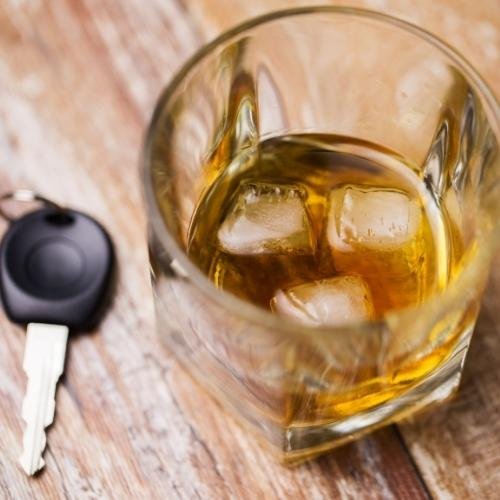Is there anything quite as pleasant as riding in a golf cart on a sunny Florida afternoon?
Being outdoors is, after all, what draws so many to Florida from around the US. It is what attracts new residents to communities like Nocatee—constructed entirely for the purpose of planting you in a golf cart whenever the fancy strikes you.
However, before you sit down behind the upraised steering wheel of a golf cart or other low-speed vehicle (“LSV”), you should be aware that the operation of such vehicles in St. Johns County is well-regulated by a variety of local ordinances.
While it might be tempting to view a golf cart or other low-speed vehicle (“LSV”) as “not a car” and therefore not subject to legal restriction, this is not the case.
When driving a golf cart or LSV in Nocatee or elsewhere in St. Johns County, you need to be aware of the laws that apply to you—and what responsibilities are expected of you.
Any failure to abide by St. Johns County ordinances when you drive your golf cart or LSV can result in criminal liability.
What Is a Golf Cart or LSV?
First, what is a golf cart, legally speaking?
St. Johns County defines a golf cart as a motor vehicle designed and manufactured for operation on a golf course for sport and recreation, not capable of exceeding 20 mph.
The same County ordinance describes an LSV as any four-wheeled vehicle whose top speed is between 20-25 mph, including electric vehicles.
Thus, your pushcart, child’s wagon, or bicycle do not qualify—not that you would expect them to. Neither, however, do other motorized vehicles such as tractors or riding lawnmowers. Any motorized vehicle capable of exceeding speeds greater than 20-25 mph is likewise outside this legal definition—but not outside of regulation.
Simply, other Florida laws or St. Johns County ordinances will apply.
What Equipment Must Your Golf Cart Have?
To operate a golf cart legally in St. Johns County, it must be properly equipped as required by local ordinance.
Specifically, golf carts and LSVs must be equipped with the following:
· Efficient brakes;
· Reliable steering apparatus;
· Safe tires;
· A rearview mirror;
· Red, reflectorized warning devices on both the front and rear of the vehicle;
· A horn or other warning device.
LSVs must also be equipped with:
· Headlamps;
· Stop lamps;
· Turn signal lamps;
· Taillamps;
· Reflex reflectors;
· Parking brakes;
· Rearview mirrors;
· Windshields;
· Seat belts;
· Vehicle Identification Numbers (VIN numbers).
In addition, LSVs must be properly insured and titled according to Florida State law. This being the case, drivers of LSVs must also possess a valid Florida drivers license.
Further, even though not otherwise required, if you plan to drive a golf cart on a designated road during darkness in St. Johns County, it must also be equipped with headlights, brake lights, turn signals, and a windshield.
Where & When Can You Drive a Golf Cart in St. Johns County?
A golf cart can only be operated on designated roads in St. Johns County.
A “designated road” is a county road that has been pre-approved for the use of golf carts by St. Johns County. These roads will be appropriately marked with signage indicating that golf cart operation is okay.
No road that allows speeds of greater than 25 mph is designated for use by golf carts, although golf carts may cross such roads.
In particular, golf carts may not be operated on sidewalks—but they may be used on so-called “multi-use paths.” Multi-use paths are sidewalks that St. Johns County has approved for the use of golf carts and LSVs, pedestrians, and other vehicles such as bicycles.
On multi-use paths, golf carts cannot exceed a speed of 15 mph.
Communities like Nocatee that own and maintain their own road systems must apply for roads within the community to be designated for golf cart or LSV use.
This is the case in Nocatee. Thus, the St. Johns County Sheriff’s Office has entered into a traffic enforcement agreement with the community to ensure that the county ordinances are maintained.
Who Can Legally Drive a Golf Cart or LSV in St. Johns County?
You must be 14 years of age or older to operate a golf cart in St. Johns County.
Even if you’re too young to hold a drivers license, you must still possess a photo ID while driving a golf cart on a designated county road.
If you’re 16 or younger, you cannot operate a golf cart between the hours of 11 PM and 6 AM.
If you’re 17 but do not have a valid Florida drivers license, you cannot operate a golf cart between the hours of 1 AM and 6 AM.
Is It OK to Drink While Driving a Golf Cart in St. Johns County?
A golf cart may not be operated recklessly or carelessly on any St. Johns County road, sidewalk, or multi-use path.
Drinking to excess is reckless.
Further, operating a golf cart while intoxicated can subject you to criminal prosecution under the Florida Uniform Traffic Control Law.
On a private golf course, your use of alcohol or other substances will be additionally regulated by the club’s own rules and requirements.
What Will Happen if I Violate St. Johns County’s Golf Cart Ordinance?
Anyone violating the St. Johns County golf cart ordinance may be prosecuted for a misdemeanor criminal offense.
These misdemeanor offenses carry a potential maximum penalty of $500.00 in fines or 60 days imprisonment—or both. Any criminal prosecution in Florida will also carry with it a basketful of additional court fines and costs, always.
Additionally, violations of the county ordinance are also enforced as civil (non-criminal) as civil infractions punishable with civil penalties.
A first violation of the St. Johns County ordinance carries a $75.00 fine if you do not contest it. If you do contest the penalty (and lose), the fine is increased to $93.00.
A second violation (and for every violation after that) carries a $150.00 fine if uncontested—and $168.00 if contested.
A civil penalty at any time will be unhelpful to your monthly budgeting.
A criminal penalty, even a misdemeanor, will be just as costly, but it can also negatively affect your employment, your employment prospects, business and professional licensing, insurance rates, child custody, and, naturally, your freedom.
In other words, drive your golf carts responsibly in St. Johns County, Florida!
When Do You Need a St. Johns County Golf Cart Lawyer?
You may need a St. Johns County, Florida personal injury or criminal defense lawyer anytime you have tripped over any of these golf cart or LSV regulations.
The attorneys of Woolsey Morcom are highly experienced in all manner of golf cart-related legal difficulties.
With offices in Jacksonville, Nocatee, Niceville/Destin, and Palm Coast, we are well-positioned to ensure that, whether you are injured in a golf cart incident or have been accused of violating any golf cart ordinance, your legal rights will be fully protected.
Contact us now to schedule a free initial conversation.



